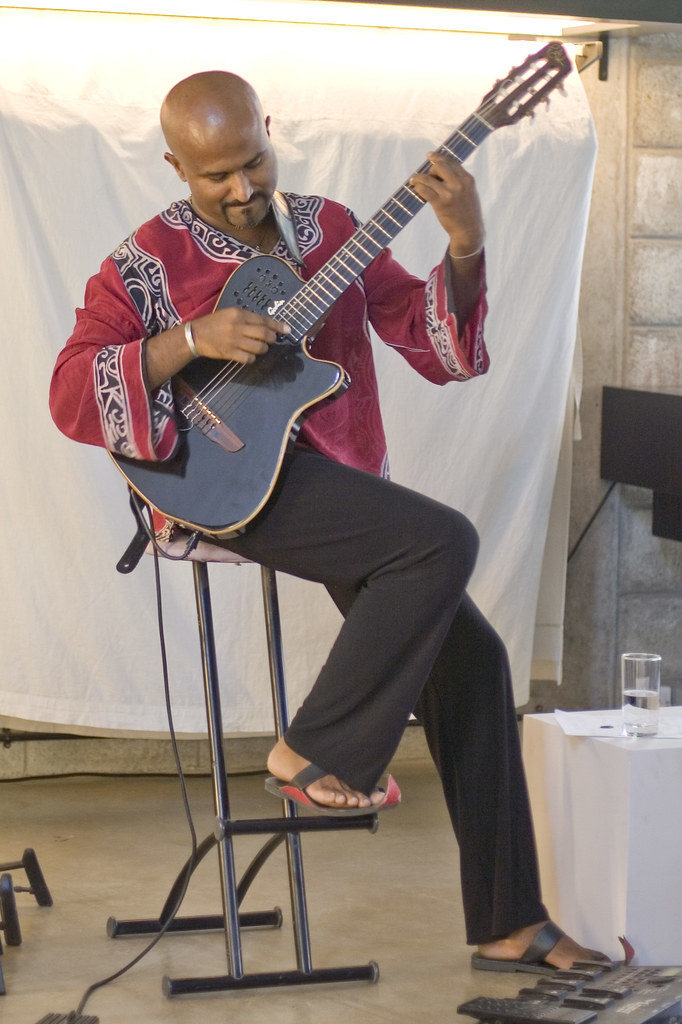Posts by Ethan Kind
Jazz or Rock Guitar – Visualizing the Extraordinary Performance (Electric)(Musicians)(Psychology)(Pain)(Strain)(Injuries)(Posture)(Alexander Technique)(Albuquerque)
This ebook, An Alexander Technique Approach to Jazz and Rock Guitar Technique, is published on this website in a PDF format. It is very detailed and practical, and it will give you the physical tools you need to take the limits off of your ability to create the accurate guitar technique you want without sacrificing your body.
This ebook is also for sale on all AMAZON websites in a KINDLE format.
Located in Albuquerque, New Mexico, U.S.A. (MOVEMENT THERAPY)
I’ve worked with performing jazz and rock guitar players, and I’ve asked them all to perform a piece in their heads, to see themselves performing on their instrument a piece they knew. I’d ask them how they did afterwards, and they usually said pretty good.
But I discovered there was one consistently unusual thing that most of them said they did in their visualizing. WHENEVER THEY CAME TO A PASSAGE THAT GAVE THEM TROUBLE, THEY SLOWED IT DOWN IN THEIR VISUALIZATION, ACTUALLY STRUGGLED IN THEIR VISUALIZING.
This was really a revelation for me, because it meant that instead of what the jazz or rock guitar player wanted out of a performance setting the possibilities, it was actually what they HAD BEEN DOING in a real performance that was setting the limits. Think about it, why shouldn’t a jazz or rock guitar player play the ultimate perfect effortless performance in their thoughts? But they didn’t. Why?
There were two reasons. The first is it would be intolerable for the jazz or rock guitar player to do in their head what they couldn’t do on the jazz or rock guitar, which means you shouldn’t think about what you can’t do, because it is just too painful. The second powerful belief is you don’t visualize what you don’t believe is true. In other words, how can you possibly conceive of the possibility of the impossible, so don’t even try!
So, the jazz or rock guitar player will not and psychologically cannot conceive of what they’re not capable of doing. This is a feedback loop of insanity. What do I mean? You do not let yourself conceive of what you’ve already proved is the impossible. But is your ability to play the jazz or rock guitar at the highest level impossible, or are you trapping yourself with lies based on gathered evidence, so you shouldn’t even find out if you’re really a mediocre jazz or rock guitar player or not.
The problem with reality determining what you visualize is totally ass backwards, as they say in Chattanooga, where I was born and raised. YOUR HEAD SHOULD TELL YOUR HANDS WHAT THEY CAN DO, NOT YOUR HANDS TELL YOUR HEAD WHAT IT IS ALLOWED TO THINK IS POSSIBLE.
By the time a jazz or rock guitar player comes to me for an Alexander Technique session, they are usually in physical trouble, and have played the way they play for years, never questioning their jazz or rock guitar technique. So, if a mediocre jazz or rock guitar player does not get into physical trouble, they may never face the possibility that their beliefs about their ability on the jazz or rock guitar has been determined by a limiting jazz or rock guitar technique. (Getting into physical trouble on the jazz or rock guitar could be a blessing.)
So, sit down and close your eyes and visualize yourself playing a jazz or rock guitar piece you know better than Montgomery or Hendrix. Were you able to? As an Alexander Technique teacher, I have to ask the question, did you see yourself playing the jazz or rock guitar amazingly beautifully upright or hunkered down? Does it matter?
Yes it does. BECAUSE IF YOU ARE GOING TO LET THE POSSIBILITY THAT THERE IS AN INCREDIBLE PERFORMER HIDDEN IN YOU EMERGE, THEN WHEN YOU VISUALIZE, YOU WILL WANT TO BRING ALL OF THE ELEMENTS TOGETHER THAT WILL MAKE THIS A REALITY.
This means you will have to be absolutely clear about what you want to hear, and absolutely clear about what is a jazz or rock guitar technique good enough that will let your body be capable of doing what your mind can conceive of.
